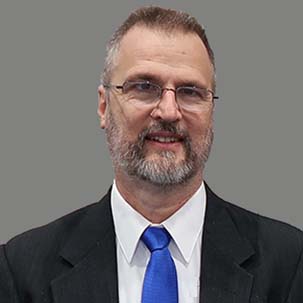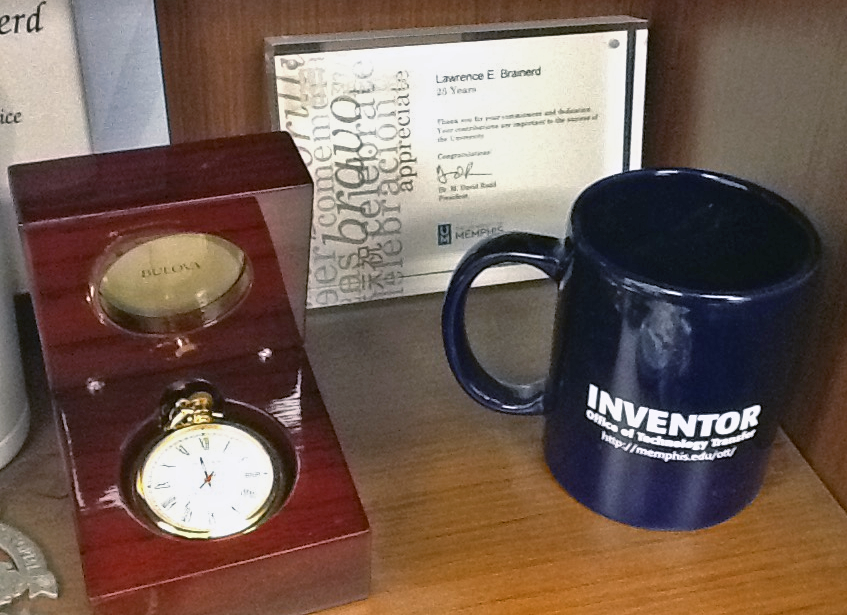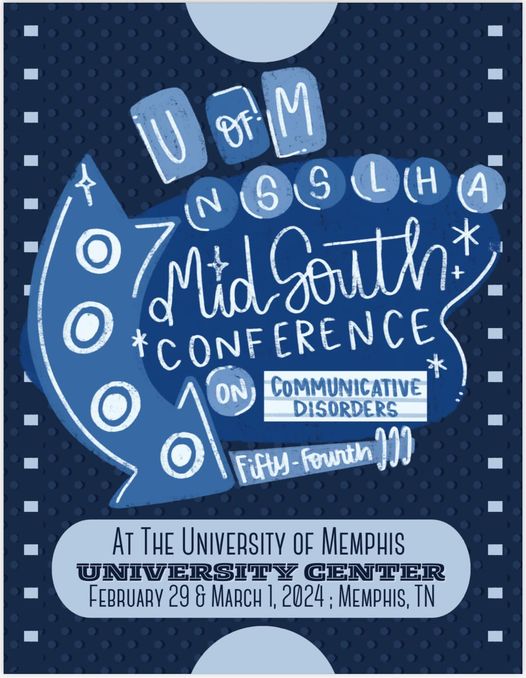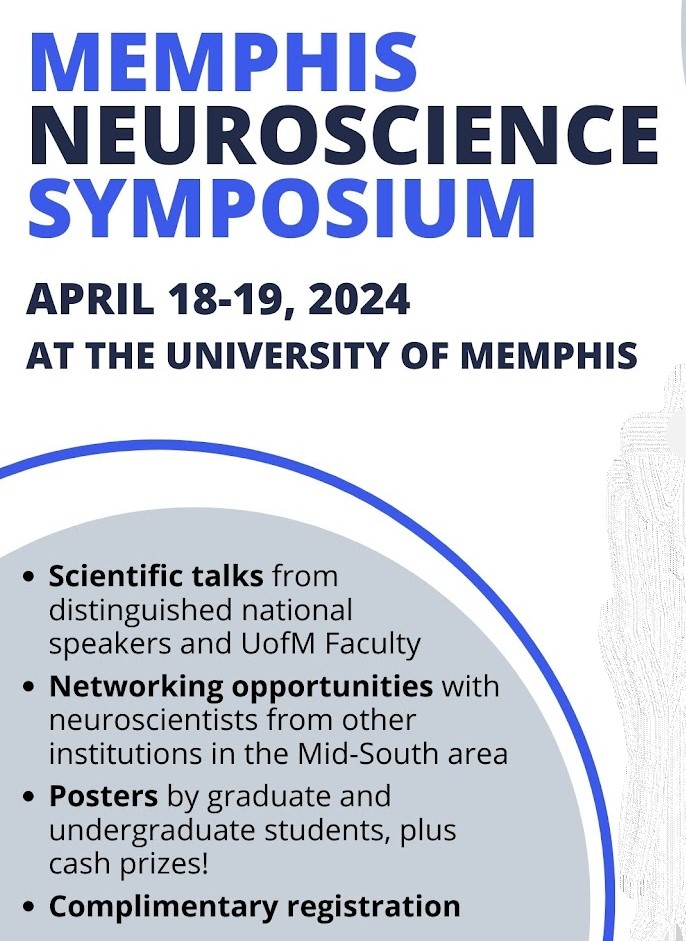School of Communication Sciences and Disorders
Ed Brainerd

Manager, Computer Systems Support - CRISCI
Phone 901.678.5800 Email lbrainrd@memphis.edu Fax 901.678.2472 Office 4055 N. Park Loop, Room 2054 Office Hours 8-4:30 Mon-FriAbout Ed Brainerd
While earning a Master's degree at the University of Memphis, Ed worked as a Research Assistant for Dr. Graesser in the Institute for Intelligent Systems. His primary task was developing LISP software to model knowledge bases and arc search procedures for traversing them. This was funded by a grant from the Office of Naval Research that supported Dr. Graesser's work in developing a model of human question answering. This work was a lot of fun for Ed as he got to develop programs on a dedicated LISP machine (TI Explorer II) as well as an Intel Hypercube. It also fostered his interest in Cognitive Science.
In 1990, Ed began working at the School of Communication Sciences and Disorders under a Center of Excellence grant to assist researchers with developing data collection and analysis software. He worked with Dr. Robyn Cox and team in the Hearing Aid Research Lab to develop software related to hearing aid selection and fitting. Many software programs originally developed by Ed in collaboration with our faculty over the years have been used by researchers and clinicians around the world.

In 2000, he was promoted to oversee computer support for the School of Communication Sciences and Disorders. Ed also took over development of the School's web presence as well as the continued development of scheduling software for our in-house clinic.
In 2009, Ed created a social media presence for the School out of a desire to help spread up-to-date information about the accomplishments of faculty and students.
2015 was a busy year for Ed. The University website underwent a complete redesign which for us meant rebuilding the School site (a Tier 2 site) and seven subsites associated with the School. We also moved into the Community Health Building which necessitated a revamp of our asset inventory processes.
In 2017, Ed began studying Data Science using tools like R, Python, and MATLAB.
!n 2019, Ed started learning about using Unity3D to develop simulation environments for use in our anechoic chamber. He also began work on developing an iOS app for an ecological momentary assessment study. He also recently began work on a software project funded by a discovery and development grant.
In 2020, Ed managed to complete his 30th consecutive year as technical advisor to the Mid-South Conference on Communicative Disorders just in time for COVID-19 to turn our world upside down.

Here is a list of many of the research projects Ed has been involved in (along with a few other projects). Links go Semantic Scholar pages that describe the research behind the development of the software.
- STHP - Development of the Screening Test for Hearing Problems
- AFAAF - American Four Alternative Auditory Feature test: Development and Validation
- VIOLA - Visual Input/Output Locator Algorithm
- DOSO - Development of the Device Oriented Subjective Outcome Scale
- RSIN - A Revised Speech in Noise Test
- VASSA - Visual Analog Scaling of Speaking Attributes
- ECHO - Expected Consequences of Hearing Aid Ownership
- SADL - Measurement of Satisfaction with Amplification in Daily Life
- CONTOUR - The Contour Test: Applications to Hearing Aid Selection and Fitting
- CST - Learning Effects in the Connected Speech Test
- APHAB - The Abbreviated Profile of Hearing Aid Benefit
- HAPEE - Hearing Associated Perceptions of Emotion and Exertion
- CPHI = Communication Profile for the Hearing Impaired
- MIDREG - Midsouth Conference Registration Program
| “You can probably stop reading at this point. All of the good stuff is above.” -Ed Brainerd |

|
Education
- M.S., Mathematics, University of Memphis, 1992
- B.S., Computer Science, University of Memphis, 1987
Professional Experience
- Mgr Computer Systems Support-CRISCI - School of Communication Sciences and Disorders The University of Memphis August 2000-present
- Research Computing Specialist - School of Communication Sciences and Disorders The University of Memphis May 1990-August 2000
- Research Assistant - Department of Psychology / Institute for Intelligent Systems The University of Memphis 1988-1990
Publications
Journals:
Graesser, A. C., Gordon, S. E., & Brainerd, L. E. (1992). QUEST: A model of question answering. Computers and Mathematics with Applications, 23, 733-745.
Graesser, A. C., Hemphill, D. H., & Brainerd, L. E. (1989). Question answering in
the context of causal mechanisms. Proceedings of the Cognitive Science Society, (pp.
621-626). Hillsdale, NJ: Erlbaum.
Posters:
Cox, R.M., Taylor, I.M., Gray, G.A., and Brainerd, L.E. " The Contour Test: Applications to hearing aid selection and fitting". Presented at the American Academy of Audiology Convention, Richmond VA, April, 1994.
Miscellaneous Stuff
Campus Organizations
- Secretary, Association for Computing Machinery - 1987
- President, Association for Computing Machinery - 1989-1990
- Technical Advisor, National Student Speech Hearing Language Association - 1991-present
Service
- University of Memphis - Technical Advisor for Mid-South Conference on Communicative Disorders - 1991-present
- University of Memphis - CSD- HIPAA Implementation/Review Committee - April 2014 - present
- University of Memphis - CSD Website Review Committee - 2005-present
- University of Memphis - CSD - HIPAA Planning Committee - July 2013 - present
- University of Memphis Web Developers Group (WebDev) - 2000 - present
- Council of Academic Programs in Communication Sciences and Disorders - Website Manager - 2000-2011


